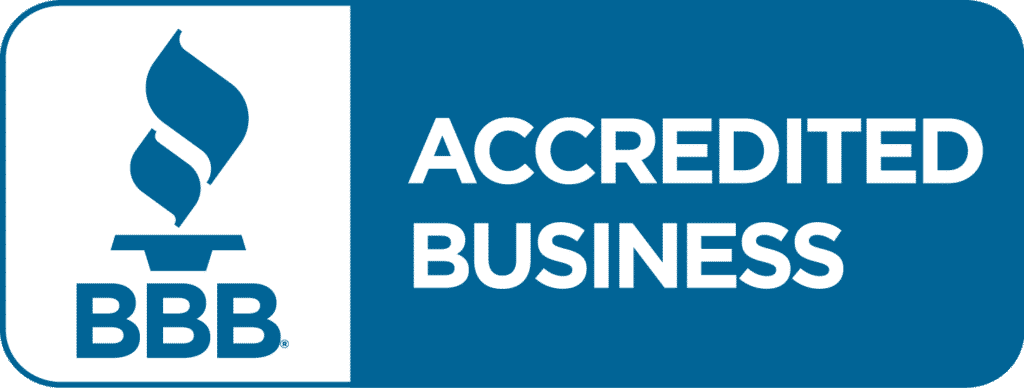Hearing Loss
Learn more about hearing loss and how to recognize the signs early.
Signs of Hearing Loss
Hearing loss can be difficult to recognize at first, especially if your hearing loss has been left untreated for a long time. Often times, our hearing will deteriorate gradually over the course of a few years. This can make it difficult to identify the signs of hearing loss because your brain has become accustomed to not hearing well.
Below are some common signs of hearing loss. If any of the following signs apply to you, then you should make an appointment with us for a hearing evaluation.

Sounds and speech seem muffled

Frequently ask people to repeat themselves

You have difficulty understanding conversation when there is background noise

You turn the volume up on the TV louder than others like

You can hear sounds but you lack clarity

You hear a ringing in your ears
Hearing Loss and Wellness
Hearing and Your Brain
Hearing loss is incredibly common, affecting over 48 million Americans. Your hearing plays an important role in your overall health and well-being. When left untreated, hearing loss can lead to serious health conditions, such as cognitive decline, depression, social isolation, and even dementia. It’s important to manage the signs of hearing loss early in order to maintain your cognitive functioning and to feel your best.
Our hearing is a crucial part in how we communicate and experience the world. Did you know that we don’t hear when sound reaches the ear? We actually hear when sound travels through the ear and reaches the auditory cortex of the brain. When the brain doesn’t hear certain sounds or tones because of hearing loss, then your brain will eventually forget those sounds, leading to cognitive decline. At Love to Hear Again Audiology, we can help you maintain your hearing and keep your brain healthy.
Hearing Education
Hearing loss, for many, is a confusing topic. We’ve aimed to clear up that confusion as best we can by providing answers and insight to many of the aspects of hearing that we’ve learned are generally misunderstood by the public.
Frequently Asked Questions
Many insurance plans offer no hearing aid benefit/funding; several offer a “coupon” program with partner entities that will manage your care with limited services and certain terms. Some insurance plans DO offer a true full- or partial-funding of hearing aids, so our office is happy to run a pre-verification of hearing aid benefits in preparation for your upcoming appointment, if you provide us your insurance information upon scheduling. We want our patients/clients to have as much information as possible to be able to make informed decisions about their hearing healthcare journey.
We accept most insurance carriers, but are specifically participating In-Network for Medicare, Blue Cross Blue Shield, United Healthcare, Aetna, Scott & White HealthPlan, Bright Healthcare, and Oscar Health.
We do not accept Medicaid plans (CHIP, STAR+, Amerigroup, Wellcare, etc) Many insurance plans offer no hearing aid benefit/funding; several offer a “coupon” program with partner entities that will manage your care with limited services and certain terms. Some insurance plans DO offer a true full- or partial-funding of hearing aids, so our office is happy to run a pre-verification of hearing aid benefits in preparation for your upcoming appointment, if you provide us your insurance information upon scheduling. We want our patients/clients to have as much information as possible to be able to make informed decisions about their hearing healthcare journey.
A wide variety of advanced features are now available in hearing aids, including noise reduction, feedback/whistling elimination, Bluetooth phone call streaming, free smart phone apps for remote control, wireless TV audio streaming, and rechargeable devices (vs. weekly battery insertion).
There isn’t a specific “best” brand. Each patient’s individual lifestyle, mobility, hearing loss level, and social needs will dictate which features, style, or brand will likely be the right fit.
Hearing aids are an investment in your health and life. The cost of hearing aids depends on the level of technology inside the device. Hearing aids range from basic to premium/top tier. At Love to Hear Again Audiology, we offer a bundled price on your hearing aid purchase. With bundled pricing, this includes the cost of the hearing aids, part and supplies, warranties for service, repair, loss and damage, as well as time and services associated with fitting, programming, and follow-up appointments for fine tuning.
Over-the-counter (OTC) hearing aids are amplification devices used to help adults who have mild hearing loss hear better in quiet settings. OTC hearing aids are similar to reading glasses as you don’t need a prescription.
If you have moderate hearing loss, an OTC hearing aid may not be enough. It’s important to also consider how well your word recognition is. If you have a difficult time discerning what is being said in a conversation when there is background noise present, you could benefit from a prescriptive hearing aid that is programmed specifically for you.
OTC hearing aid prices vary depending on the brand. Just like prescription hearing aids, they can range in cost. If cost is a concern for you, we carry a wide range of hearing technology at various price points.
Myths About Hearing Technology
Do you believe any of the following? Click on a myth to learn the truth about hearing and hearing aids.
Fact: Hearing loss can occur at any age, birth to 100+, as hearing can be affected by genetics, noise exposure, certain syndromes, some medications, metabolic and nutritional factors.
Fact: Studies have shown that hearing loss is not a benign condition; those who are not proactive with their hearing health or who leave hearing loss untreated, have a significantly increased risk of cognitive decline and dementia.
Fact: Hearing loss is a communication disorder, and we know communication is a two-way street. Even if you don’t realize it, your friends and loved ones are affected too; they have to raise their voice, repeat themselves, or may just withdraw from or avoid conversations out of frustration.
Fact: Most physical modifications or sound quality adjustments can be made in order to alleviate any frustrations with hearing aids. Even after several attempts, if you are unhappy with the result, you are protected by Texas state law for a 30-day return policy on hearing aids.
Fact: While several big-box retail stores offer similar hearing aid brands, styles, and features at a reduced price, what you save in expense is usually the most important part of the hearing rehabilitation process: professional service and know-how. For best success with hearing aids, please seek an office with hearing healthcare professionals such as a doctor of audiology/audiologist or an otolaryngologist/ENT clinic.
Helpful Hearing Tips
Tips for Hearing Aid Wearers
Don’t be afraid to be your own self-advocate. In groups and noisy settings especially, letting your communication partners know beforehand that you communicate best if they face you and annunciate clearly when speaking might save everyone frustration in the moment.
Tips for Communicating with People who have Hearing Loss
When speaking with someone who has trouble hearing clearly, it is always best to face them, reduce any background noise or distraction, get their attention before you begin, and slowing your rate of speech enough to clearly annunciate.
Tips for Adjusting to Your New Hearing Aids
Often new hearing aid users will experience sounds in their environment which are “new” or unexpected (such as subtle details/quality of their own voices, air conditioning or fan, water splashing, paper crunching, their own footsteps) which they haven’t heard in a while. The first week after your hearing aid fitting, it’s best to take note of what sounds are particularly bothersome or which don’t “normalize” after a few days – as these sounds may be adjusted down.
Our Office
Love to Hear Again Audiology is located just off of William D. Tate, on the corner of S. Ball St. (behind Andy’s Frozen Custard).
1125 S. Ball St. STE 105
Grapevine, TX 76051
Phone:
Fax:
(817) 722-6159
By Appointment ONLY:
Monday – Friday 8:00am – 5:00pm
Walk-in Service Hour 12:00PM-1:00PM

